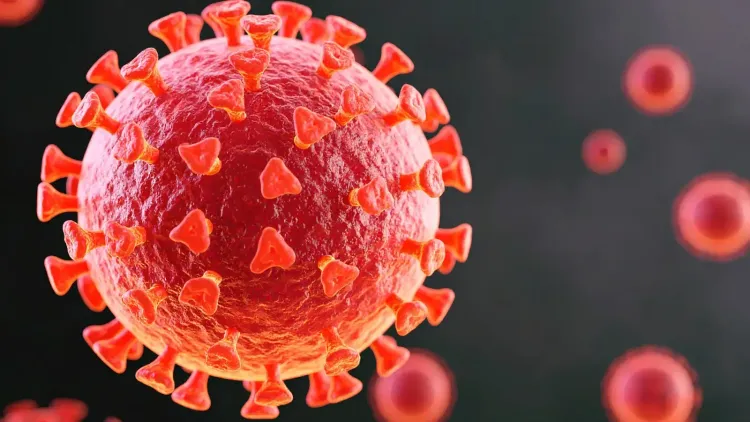Can SARS-CoV-2 Reinfection Increase Long Covid Risk in Children?

Synopsis
Key Takeaways
- Reinfection with SARS-CoV-2 significantly increases long Covid risk in children.
- More than 1,800 children per million may develop long Covid after reinfection.
- Conditions linked to long Covid include myocarditis and cognitive issues.
- Vaccination remains the most effective preventive measure.
- Ongoing research is needed to understand the long-term effects of Covid-19 in children.
New Delhi, Oct 1 (NationPress) A recent study published in The Lancet Infectious Diseases reveals that a reinfection with SARS-CoV-2, the virus responsible for Covid-19, significantly increases the risk of developing long Covid in children, doubling it overall.
Analyzing data from over 460,000 children and adolescents across 40 pediatric hospitals in the United States, the research indicates that after the first Covid infection, roughly 904 children per million experienced long Covid symptoms within six months.
However, after a reinfection, this figure escalated to about 1,884 children per million.
These young individuals were found to be more susceptible to a variety of rare yet persistent and potentially severe conditions, including heart inflammation (myocarditis), blood clots, kidney damage, cognitive challenges, fatigue, and respiratory issues.
“These results bolster prior evidence connecting pediatric long Covid to multisystem effects and underscore the necessity for promoting vaccination in younger demographics,” stated researchers from the Universities of Pennsylvania, Iowa, and California.
“The increasing incidence of SARS-CoV-2 reinfections during the omicron era highlights the importance of understanding their long-term implications. Our findings reveal that the risk of post-acute sequelae of SARS-CoV-2 infection (long Covid) persists in children and adolescents after reinfection, although the extent may depend on prior infection history, severity, and vaccination status. These results imply that reinfections could add to cumulative morbidity,” they added.
The study evaluated electronic health records from January 2022 to October 2023, a timeframe dominated by the highly transmissible omicron variant. Researchers compared health outcomes following the first and second documented Covid infections in children to differentiate the risks linked to reinfection.
The team highlighted that while vaccines and other preventive strategies may not entirely eliminate the risk of contracting Covid, they remain the most effective means of preventing both initial infections and reinfections, thereby mitigating the risk of enduring symptoms in children.
They reiterated that the study's conclusions emphasize the need to bolster public health initiatives aimed at increasing Covid vaccination rates among children and adolescents.









